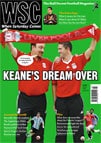 Matthew Barker looks at Silvio Berlusconi's role in the Kaka saga and at what it says about Milan's diminishing status
Matthew Barker looks at Silvio Berlusconi's role in the Kaka saga and at what it says about Milan's diminishing status
Silvio Berlusconi broke the news during a televised phone interview that Kaka had decided not to leave Milan. “Ricky said to me, ‘there are more important things in life than just money,’” he gushed. “It’s as if we’ve won another Champions League.” If only, thought watching rossoneri fans. That the Brazilian was staying may have prompted celebrations in the Lombard capital, but the red-and-black half of the city has had little to smile about of late.
There’s been a definite change in Milan’s psychological make up in recent years; they’ve lost their arrogant swagger. Astronomical as Manchester City’s offer was alleged to be, the idea of the seven-times European champions becoming a selling club, one prepared to offload their prize asset, has set alarm bells ringing, both for the fans and the player. Kaka reportedly told team-mates via text messages how unhappy he was to discover that he wasn’t actually unsellable, while Milan’s seeming determination to pressurise him into making a decision when Bosco Liete, his father and agent, was back in Brazil, left a sour taste.
Kaka was angered by City chief executive Garry Cook’s claim that he turned them down for financial reasons, and that he didn’t believe in the club’s great project – but Cook was half-right. The Brazilian clearly found it difficult to put his faith in a club that couldn’t guarantee any sort of European football next season, not to say the season after that. Milan too were furious after City stated that the widely-reported transfer fee was a fabrication. Various conspiracy theories have surfaced, most centred around speculation that Berlusconi and right-hand man Adriano Galliani had manipulated the initial transfer discussions to hike up the asking price. Kaka has generally come out of all this in a good light, yet Gazzetta dello Sport believe an irritated Berlusconi went public on the deal after Bosco Liete requested another wage increase for his son on the basis of City’s interest.
If, as theorists believe, Berlusconi was hoping the whole affair would improve his standing in the eyes of an increasingly frustrated fan base, the Italian prime minister may be disappointed. There’s been an uneasy relationship between supporters and owners for some time, spreading from the core of the Curva Sud (Galliani has actually been living under escort since being threatened by members of an ultra group in early December) to the usually sedate tribune. Winning the Champions League and Club World Cup has only papered over successive seasons of woeful domestic form. Alexandre Pato aside, the failure to breathe new life into an ageing squad is widely blamed on a boardroom that has lost its touch.
The Italian press reaction to City’s riches has generally been one of incredulity, though plenty of commentators have pointed out that this is just the sort of thing Serie A clubs used to get up to in the 1980s and 1990s. Berlusconi’s first signing as president of Milan was a young Roberto Donadoni, snatched from under the noses of Juventus in 1986 after tabling a deal worth double what the Turin club were prepared to pay. It set the template for a transfer policy that upped the profile of both team and owner over the following decade. Berlusconi’s millions shaped an international brand; what City now aspire to.
US-backed consortiums came close to buying up chunks of both Bologna and Roma last year and foreign interest in investing in Serie A will doubtless surface again over the coming months. Kaka now knows that his club will let him go if the price is right. If he does jump ship in the summer and Milan are again squeezed out of a Champions League spot, an already tense situation will only get worse. Berlusconi, a man painfully obsessed with his public image, may even think of selling up. Could it be that Milan themselves will soon be ripe for a takeover?
From WSC 265 March 2009